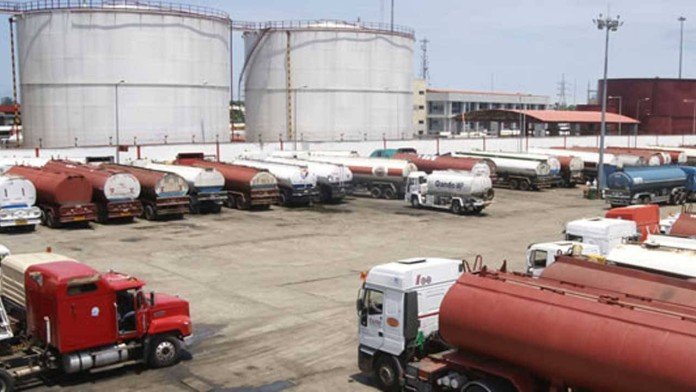By Amin Kef (Ranger)
It is an indisputable fact that since the outbreak of the Russia and Ukraine war the supply of and access to petroleum products became disrupted simply because Russia is a main producer and supplier, coupled with the imposition of sanctions on Russia by the West, thereby seriously affecting smooth trading transactions. Sierra Leone, like any developing country, is feeling the crunch, evident in intermittent shortages and changes in the pump price.
In the midst of this quagmire the big question that needs to be answered in response to the expression of a view by a school of thought will be:
Is monopolizing the importation of petroleum products the way to go?
Indeed it will interest many to know that since the days of the Atlantic West African Oil Company in Sierra Leone, which was managed and operated by Paterson Zochonis in 1954, to date, there has never been a situation where any Government of Sierra Leone has been toppled as a result of the lack of petroleum products.
The article written by one of the local tabloids in this country and the references to specific Oil Marketing Companies (OMCs) in Sierra Leone is worrying.
The writer of the said piece raises a lot of issues that should be addressed because almost all of them are incorrect. If our local institutions are to thrive, it is important that assessments made regarding them are fair and not based on assumptions.
To start with we must know that there is no country in which the Government imports petroleum commodities, not even Guinea that the writer alluded to. Countries have long relinquished that responsibility to the private sector. Why should Sierra Leone be different? To be fair with the writer, he posits some arguments on that but it is sad that he was unable to substantiate them.
A concern, he raised, is about inadequate storage facility for OMCs in Sierra Leone. This issue must never arise because, the situation at hand is one in which the total storage available is far more than the country requires, when all the existing companies are put together. So to say that there is inadequate storage facility is totally incorrect. At the moment NP alone has over 20 million US dollars worth of product available and concrete plans are in place to have fuel that will last all through this year uninterrupted. Election year 2023, all the EU, UN and other monitors coming in, who have depended on NP for fuel over the years would be looking up to the institution to make the same provision, and NP has already put strategies in place to meet that demand. NP no to Hand-to-Mot company!
To say that Oil Marketing Companies (OMCs) in SL “lack the financial muscle to keep the downstream petroleum sector alive”, is hasty generalization. That is a serious fallacy! To misplace arguments and pretend to be articulating issues on the basis of patriotism when actually it is a facade to give another entity an edge, is not civil. No writer in this nation can currently boast of having any evidence of the financial and capital status of OMCs in Sierra Leone. If any writer is asked to provide such evidence, one is assured that the individual will be quizzical about it.
In one breath, the writer of the article is saying that the All Petroleum Products (SL) Ltd are finding it very difficult to operate because they lack resources to compete with NP (SL) Limited and Leone Oil (SL) and in another breath he is saying that these same companies; NP and Leone Oil, (two companies that are part of this same OMCs that he had said lacked financial muscle) are well placed financially than APP. So if NP and Leone Oil have the adequate financial muscle (to utilize the writer’s words inversely), why ask Government to “cancel the importation license”? You say d man get d “adequate resources”, why u want for dreb am bo?!
We should stop this unfairness and begin to work towards complementing fellow Sierra Leoneans who are doing well.
NP supports Government institutions and the people of Sierra Leone greatly by giving huge amounts of credits and also subsidizing the price of petroleum products when necessary to maintain stability in the country. When other Multinationals come and go, NP is always around to bear the storm. That is how it has been!
Asking Government to not only “bring in a company that will be solely responsible for the importation of petroleum products in SL,” but to also cancel the importation license of Sierra Leonean companies is not only inimical to the growth of our local companies, but it further begs the question of what will be the guarantee on sustainability of the approach this writer is advocating.
Multinationals have come and gone, what is the guarantee that if Sierra Leone Government monopolizes the importation of fuel the company that comes in will stay?
Sincerely, these sorts of suggestions when made without an iota of consideration of the implications of such an action is worrisome! Do we want all the investments made by Sierra Leoneans and the new facilities and technologies recently developed by especially NP (SL) to be thwarted just like that? Is that what the writer is implying? Is the writer suggesting that the hundreds of Sierra Leoneans employed by OMCs and their families go without jobs? If this Government countenance this suggestion then we finally will conclude that Salone dea far fos!




